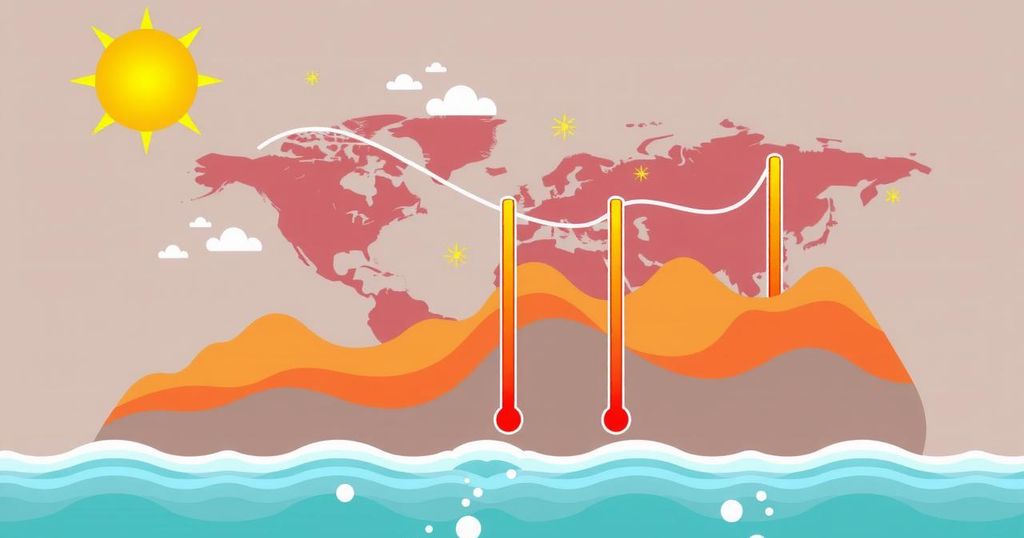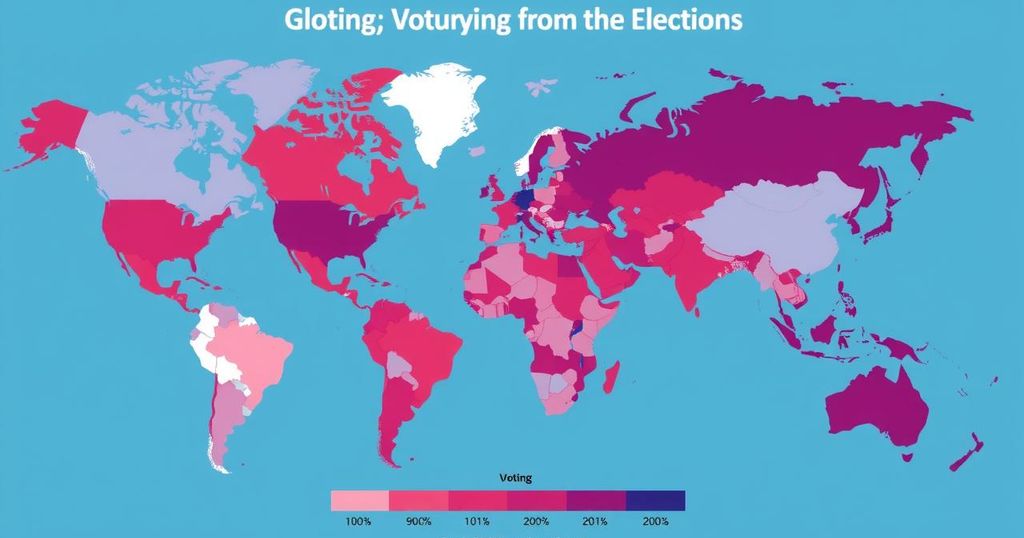2024 Sees 41 Extra Days of Dangerous Heat Due to Climate Change, Report Warns
A report reveals that climate change has led to 41 extra days of dangerous heat globally in 2024, resulting in over 3,700 deaths and millions displaced. It highlights the urgency for transitioning from fossil fuels and improving preparations for extreme weather events. Four key recommendations are posed for 2025, emphasizing renewable energy and international financial support for vulnerable regions.
In 2024, the profound impact of human-induced climate change has resulted in an alarming increase of 41 additional days of dangerous heat worldwide, as reported by climate research organizations World Weather Attribution (WWA) and Climate Central. The report titled “When Risks Become Reality: Extreme Weather in 2024” highlights the urgent need for global action in transitioning away from fossil fuels and better preparation for extreme weather events in the coming years. This year has served as a stark illustration of the consequences of fossil fuel-induced warming, with over 3,700 lives lost and millions displaced by extreme weather phenomena.
The analysis examined 219 extreme weather events, revealing that human-caused climate change intensified 26 of the 29 studied occurrences, including catastrophic floods, hurricanes, and droughts. For instance, Hurricane Helene, which struck six states in the US, was exacerbated by climate change, with sea temperatures making it 200 to 500 times more likely. Moreover, devastating floods in Africa, particularly in countries like Sudan and Nigeria, accounted for over 2,000 fatalities and significant displacements, signaling a potential annual occurrence of similar events as warming trends continue.
Consequently, the report underscores the increasing health risks posed by the additional 41 days of heat, categorically defined as temperatures within the top decile of historical records from 1991 to 2020. Joseph Giguere, a researcher at Climate Central, pointed out that hot daily temperatures endangering human health have become markedly more prevalent globally due to climate change.
In light of these challenges, the report advocates for swift international action, proposing four pivotal resolutions for 2025. These include accelerating the shift to renewable energy sources, enhancing early-warning systems, implementing real-time tracking of heat-related fatalities, and providing financial assistance to developing nations striving to adapt to climatic changes. Dr. Friederike Otto from WWA emphasized, “We have the knowledge and technology to replace fossil fuels with renewable energy and halt deforestation.”
Overall, as 2024 is projected to be one of the hottest years on record, the report calls for prompt global cooperation to confront the escalating climate crisis and mitigate future disasters.
The context of this report revolves around the increasing severity and frequency of extreme weather events attributable to climate change. Climate scientists advocate for a transition from fossil fuels to sustainable energy to mitigate ongoing and future catastrophes. Studies such as this are crucial for comprehensively understanding the implications of climate change, and they highlight the urgent need for policy changes and collective global action.
This comprehensive analysis reveals that human-induced climate change has drastically increased the occurrence of dangerous heat, underscoring a pressing need for immediate global action to curtail fossil fuel usage. The results reflect the serious implications for public health and the environment, urging nations to implement strategic responses to adapt to extreme weather events. The call for heightened international cooperation and investment in renewable energy is paramount to safeguarding humanity and the planet’s future.
Original Source: www.dynamitenews.com




Post Comment